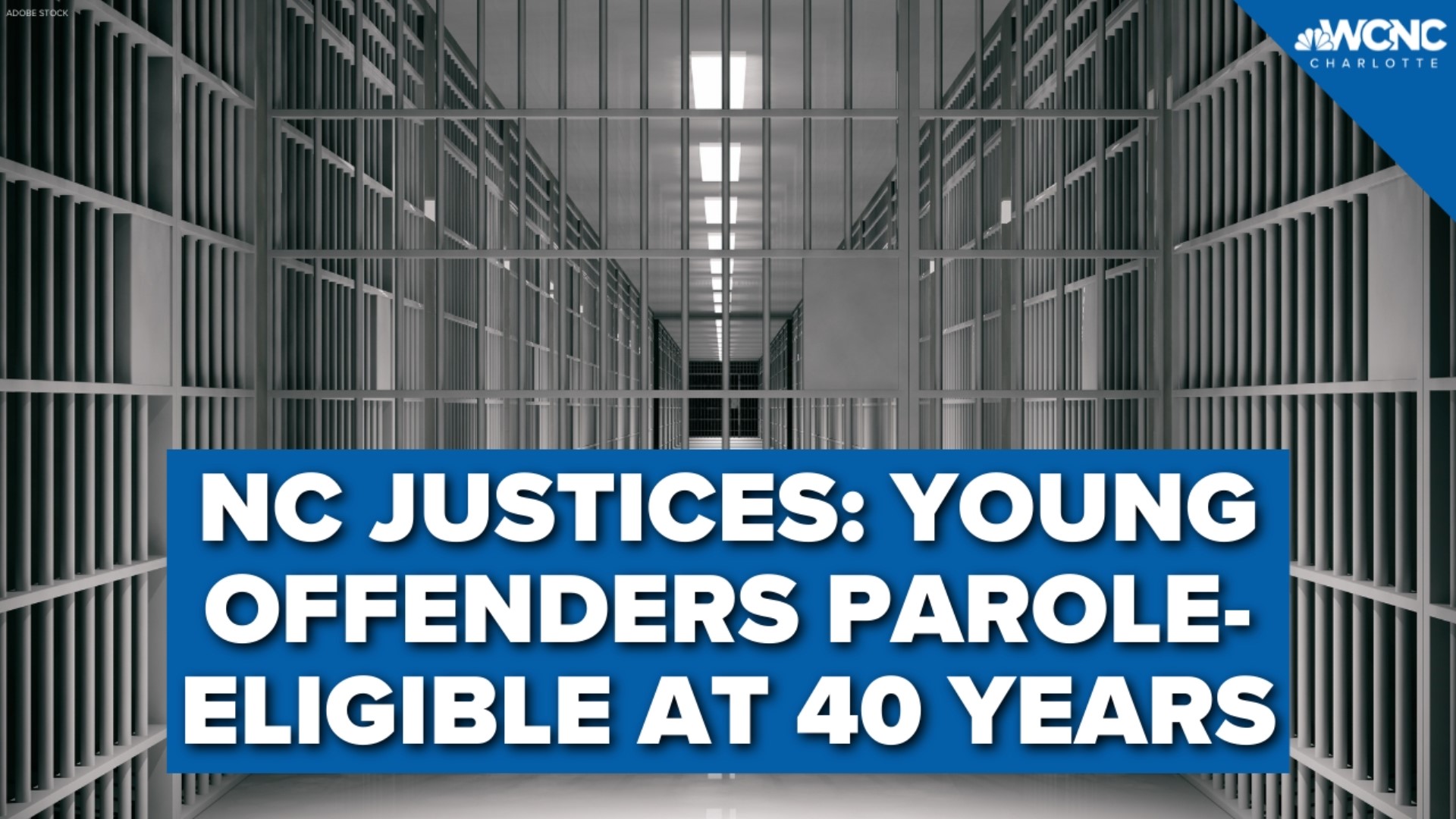RALEIGH, N.C. — Juvenile offenders in North Carolina sentenced to long prison terms for deadly and violent crimes must be eligible for parole after 40 years behind bars, a sharply divided state Supreme Court ruled on Friday.
In a pair of cases involving youths who committed murder, rape, or both, the four justices making up the court's Democratic majority agreed that sentences that required the offenders to serve 45 or 50 years before a possible release were the equivalents of having no chance at all.
Such punishments for offenders under 18 violate provisions in the state and U.S. constitutions barring cruel and unusual punishment, the majority ruled in the cases involving the sentencing of James Ryan Kelliher and Riley Dawson Conner. In each matter, the sentences imposed would have made them at least 60 years old before becoming parole-eligible.
Conner was 15 in 2016 when he raped his aunt in Columbus County, beat her to death with a shovel and put her body in a wooded area, according to court documents. Kelliher was 17 in 2001 when he took part in a Cumberland County robbery and the shooting deaths of a drug dealer and his pregnant girlfriend. Both Kelliher and Conner pleaded guilty to crimes and were sentenced.
“The crimes Kelliher committed and the pain he caused are irrevocable," and he can't replace what he took from the victims and their families, Associate Justice Anita Earls wrote in the majority opinion on Kelliher's sentencing. But ”he cannot be deprived the opportunity to demonstrate that he has become someone different than the person he was when he was 17 years old and at his worst.”
The court’s three Republicans joined in scathing dissenting opinions, accusing their colleagues of judicial activism by setting parole application period minimums that should be left for the legislature to enact.
The rulings also will prevent judges from sentencing a juvenile offender convicted of multiple counts to serve prison terms on each count consecutively should the minimum cumulative time behind bars exceed 40 years, the dissenting justices wrote.
Kelliher, who pleaded guilty to two counts of first-degree murder, would have to wait until age 67 to be eligible for parole — since each came with 25-year minimum sentence that a trial judge ordered he serve one after the other. But the majority in Kelliher's case agreed the sentences must run simultaneously, meaning he could seek parole after 25 years — or later this decade.
“The majority’s holding today sets dangerous criminal policy. It devalues human life by artificially capping sentences for offenders who commit multiple murders,” Chief Justice Paul Newby wrote. “What is 'cruel' in this case is not the punishment for the crimes but the tragic irreparable loss because of the murder of a young man and his pregnant girlfriend and the ongoing anguish of the victims’ families.”
ALSO ON WCNC CHARLOTTE: Charlotte councilman remembers sister on Charleston church shooting anniversary
Earls and Associate Justice Mike Morgan, who wrote the prevailing opinion in Conner's sentencing case, said they examined federal prison population data, life expectancy tables and other information before settling on 40 years. Morgan wrote the rule attempts to give an offender sufficient time to rehabilitate while giving the offender enough time for a meaningful post-prison life. The majority made clear that eligibility doesn't mean the offender will be automatically paroled.
A judge had sentenced Conner to life in prison with the possibility of parole for his aunt's murder and from 20 to 29 years in prison for the rape. The sentences were to run consecutively, so Conner would have to have been incarcerated for 45 years until age 60 to seek parole.
The rulings further refine a landmark 2012 U.S. Supreme Court decision that held mandatory life sentences without the possibility of parole for a juvenile defendant are unconstitutional. North Carolina legislators responded with sentencing changes. There remains a process that allows a judge to sentence someone convicted of first-degree murder and under 18 at the time of the offense to life in prison without parole if it's determined the youth can't be rehabilitated.
Disability Rights North Carolina and North Carolina Advocates for Justice, a trial lawyers' association, were among groups that filed briefs in the cases urging that sentences until parole eligibility for young offenders be capped at 25 years.

